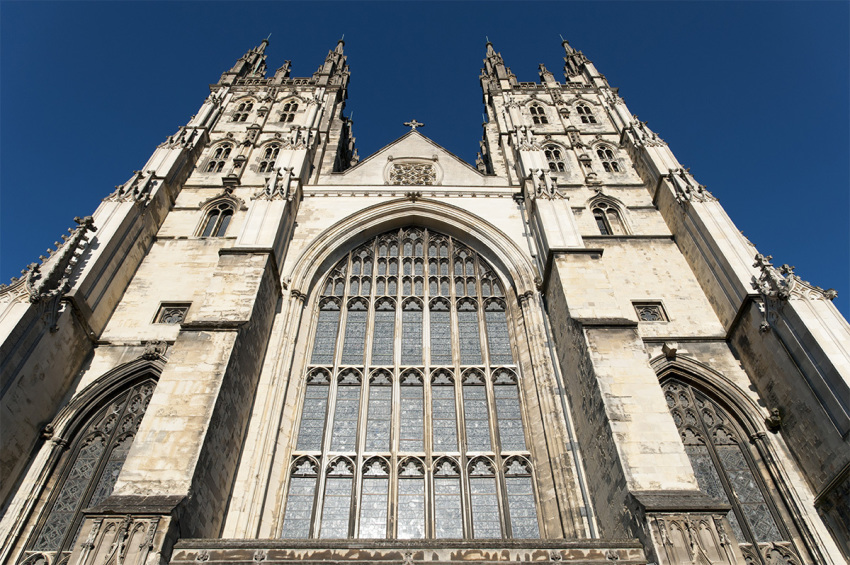What is the future for Evangelicals in the Church of England?

This year the Church of England's General Synod backed prayers of blessing for same-sex couples, and they were permitted for use in services for the first time on December 17.
Christian Today spoke with Rev John Dunnett, national director of the Church of England Evangelical Council (CEEC), about the Church of England's new same-sex prayers and what they might mean for the future of Evangelicals in the Church.
Christian Today: Thinking back to the start of the year, before these proposals were backed at the February Synod, did you suspect things would go this way or has it still come as a bit of a shock that the Church of England has now formally committed to this route?
Dunnett: The CofE has been debating for a number of years whether to change its understanding and practice around same-sex marriage. Given how things went with the Living in Love and Faith process in the last couple of years, the proposals that came forward in February didn't come as a great surprise.
CT: Do you regard Dec. 17 as something of a dark day for the CofE?
Dunnett: December 17th represents a line being crossed because for the first time, it is now possible to do something that hasn't been possible in the whole history of the Church of England. The historic Church of the last 2,000 years has until now said: 'This isn't possible because it's asking us to bless something the Bible says you can't bless.' We all feared it was going to happen but I think a number of people will still feel profoundly dismayed now that it has.
CT: The Bishop of Southwell and Nottingham has written to clergy in his diocese requesting that they desist from using these prayers until they are canonically authorized. Do you agree with that call?
Dunnett: The CEEC is very grateful for the letter that the Bishop of Southwell and Nottingham has distributed within his diocese. He is rightly saying that there are still serious question marks about the process and that what we are being invited to do is not supported by Scripture and so we therefore have no choice but to say that we can't commend this. We are very grateful for the position Bishop Paul has taken.
CT: In his letter, the bishop mentioned the depth of divisions in the CofE on this issue. Is it also your sense that the divisions on this run very deep?
Dunnett: He's absolutely right with regard to this division. The House of Bishops is very divided on this, and the General Synod is literally split down the middle. Since the November Synod, I have spoken to clergy and parishes up and down the country where the split is already starting to tear them apart. One associate clergy person said they are leaving their church because their vicar is going to use these prayers. Lay people in churches have told me that when their vicar does use them, they will be leaving, and family workers and youth workers have said the same.
I know of some vicars who are too nervous to have the conversation at PCC (parochial church council) because it's split down the middle. Now that the issue is being forced, vicars know that the moment they get a knock at the door from a couple asking for these prayers, regardless of whether they say yes or no, the parish is going to split. This House of Bishops is throwing a 'hand grenade' into local parishes, it is so sad.
CT: The leadership of the CofE keeps insisting that doctrine hasn't changed. What do you make of that claim?
Dunnett: If two people of the same sex turn up to a Sunday service wearing white, who got married in the registrar's office the day before, and just happen to have a few friends throwing confetti as they walk out the church, then how is the man in the street not going to see that as a change in Church of England's doctrine? Any person with common sense would have to say, 'you're kidding yourself, the emperor has no clothes!'
CT: What kind of provision do you want for Evangelicals?
Dunnett: The draft guidance being prepared by the House of Bishops included at an early stage the possibility that clergy can marry a same-sex partner and suggests it would be inappropriate to ask personal questions about the lifestyle of people offering for ordination. If these are included in the final guidance, then this would indeed be a departure from the doctrine of the Church of England.
If that becomes the case, the CEEC would have to say that we cannot be part of a diocese that accepts two contradictory positions. We need to be able to teach and preach what has always been understood as the Christian position on marriage and call out other views as errant. The ordination and licensing of orthodox clergy should be overseen by an orthodox bishop, and orthodox churches must be free to partner with other orthodox churches. They must not be forced to work with churches that have a view that has always been seen to be contrary to Scripture.
There must also be a secure orthodox pipeline so that ordinations and training take place within an orthodox context, and senior appointment processes must be adapted to ensure orthodoxy into the future.
This piece was originally published by Christian Today.



























